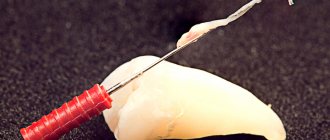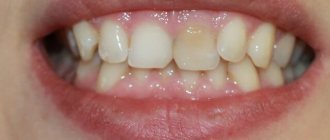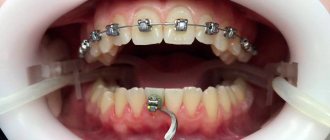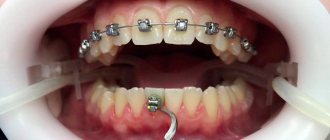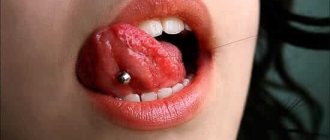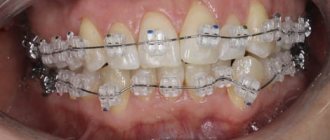Price reduced! 800 rub.
A certificate from a dentist can be requested by many authorities. This document is in great demand by expectant mothers who are planning to go to the maternity hospital. The fact is that this certificate is most needed by pregnant women. It certifies that the patient’s teeth and oral cavity are in perfect order, which means she can be admitted to the ward to prepare for childbirth. The maternity hospital has the right to refuse to admit a patient for observation without this certificate, or to place her in the infectious diseases department. Also, a certificate from a dentist about the sanitation of the oral cavity may be required when applying for a job, for example, as a train conductor. The majority of the work time will have to be spent on the road, and solving problems of passengers at any time of the day, which means that toothache should not interfere with the performance of work duties.
What is oral sanitation
Sanitation of the oral cavity is a selection of health procedures designed to promptly detect and eliminate various dental and jaw pathologies and prevent the development of dental diseases. Despite the fact that such events are not considered generally obligatory and are not strictly regulated by the Ministry of Health, the absence of an extract about their implementation can cause a number of difficulties.
When you may need a certificate from a dentist about oral sanitation:
- when enrolling a child in school or kindergarten;
- during pregnancy for registration;
- when employed in hazardous production;
- before the actual surgical operation.
Thus, a certificate from a dentist is an important medical document, the absence of which significantly limits a person’s freedom.
Fortunately, today you can buy a dentist’s certificate for oral sanitation in Moscow, saving a lot of time and effort. Just contact us by calling the number provided or filling out the online form, and professionals will take care of your issue.
Certificate from the dentist for surgery
If the patient is undergoing a major operation in the near future, a certificate from the dentist is needed among other documents confirming the patient’s health. A dentist's opinion can reduce the number of complications after surgery. Our oral cavity and teeth are connected by blood flow to the entire body, and if a focus of inflammation remains somewhere, this can seriously harm a person already weakened after surgery.
In addition, during the operation itself or during the rehabilitation period, existing dental diseases (caries, pulpitis, periodontitis) can worsen and cause complications. That is why, before a planned operation, it is necessary to treat all teeth at least a month in advance, make sure that nothing threatens the health of the oral cavity, and obtain a certificate, without which the surgical operation will be impossible.
Get it yourself or buy it?
A certificate from a dentist is a document confirming that the teeth and gums in the patient’s mouth are in healthy condition and cannot cause any infection. Such a document may be required in a variety of life situations. For example, if it is necessary to go to hospital for any operation or when registering during pregnancy.
Why is it better for pregnant women to buy a certificate from a dentist than to go to an appointment?
The main difficulty in officially obtaining this document is that the doctor will only issue it if the gums and teeth are truly healthy. Otherwise, you will need to undergo treatment first. Some teeth may need to be removed and others need fillings. Naturally, with such a development of events, it will not be possible to obtain a certificate in one day. However, there are situations when it is needed very urgently.
If you recently visited the dentist and are sure that your oral cavity is in perfect order, you can refuse to visit the dentist’s office again. It is enough to buy a certificate from the dentist. This will allow:
- save a lot of effort (despite the abundance of all kinds of dental clinics, there are still long queues, especially in government institutions);
- save yourself from additional unpleasant experiences (there is no doubt that visiting the dentist gives at least a little pleasure to someone);
- in the shortest possible time and without any bureaucratic delays, receive the necessary document for submission to one or another authority.
What to expect during a routine dental visit?
A dental examination is a systematic examination during which the doctor carefully evaluates the condition of the oral cavity and maxillofacial area in order to identify caries, periodontal disease, neoplasms and other diseases.
The stages of the examination include assessing:
- Facial area and neck. The doctor will perform a thorough palpation to rule out the presence of enlarged lymph nodes or salivary glands, as well as any suspicious growths such as cysts and tumors. The function of the temporomandibular joint is also assessed.
- Soft tissues of the oral cavity. The tongue, the inner surface of the lips and cheeks, as well as the floor of the mouth and palate are examined. These areas are examined for redness, swelling, damage, and growths. The posterior wall of the pharynx and tonsils are also examined.
- Periodontal (periodontal tissues). The doctor will evaluate the color, surface (relief), shape of the gingival papillae, as well as signs of inflammation or bleeding of the gums. In addition, the oral cavity is checked for the presence of pathologies such as a decrease in the level of the gingival margin, disruption of the periodontal attachment, the presence of periodontal pockets, migration and mobility of teeth.
- Conditions of the dentition. The anatomical shape of the teeth, their color and surface, as well as the dental formula are assessed. The bite and occlusal contacts are checked.
- Dental conditions. The doctor will look for signs of caries, and will also evaluate the condition of existing fillings according to the following criteria: anatomical shape, marginal fit and staining, and the presence of secondary caries. If the patient wears fixed or removable dentures, their current condition and function are checked.
Once the examination is complete, your dentist will discuss the results with you and, if necessary, develop a treatment plan. In addition, the doctor will give recommendations on proper oral care.
How teeth and gums are prepared for extraction, prosthetics or implantation
Like any other operation, tooth extraction, installation of dentures or implants requires careful preparation. Therapeutic preparation of the oral cavity for further manipulations - prosthetics, installation of braces or implantation, includes:
- Initial examination and appointment of all necessary studies (X-ray, CT scan possible, clinical tests, etc.)
- Sanitation of the mouth. At this stage, all foci of inflammation are identified and eliminated, caries and its complications are treated, and the health of the gums and mucous membrane is restored. If necessary, depulpation of abutment teeth can be performed before prosthetics. All manipulations in our clinic are carried out in accordance with international protocols - using sterile disposable instruments and a dental dam to isolate teeth.
- Professional teeth cleaning - removal of subgingival and supragingival stones, followed by polishing and fluoridation.
The last point is no less important than correct diagnosis and treatment of teeth or gums. Because as a result, it is the removal of stone that helps relieve excess inflammation of the gums, reduce bad breath and prevent negative consequences that may interfere with maintaining oral health after any dental procedures.
For pregnant
In order to avoid problems with teeth and gums during pregnancy, it is necessary to take care of your dental health even before pregnancy, at the planning stage. If everything necessary to eliminate existing dental problems is carried out in a timely manner, the development of concomitant pathologies can be minimized. Some of the most common oral problems experienced by pregnant women include:
- Development of caries due to disturbances in the acid-base balance.
- Weakening of the protective properties of tooth enamel due to changes in the mineral composition of saliva.
- Deterioration of enamel due to loss of calcium.
- The development of gingivitis as a consequence of changes in hormonal levels.
In modern dental clinics, sanitation of the oral cavity in pregnant women is carried out extremely carefully in order to minimize possible risks. For a safe and successful outcome of this procedure during pregnancy, the dentist needs to know the current stage of pregnancy. This is important for the selection of therapeutic manipulations during this period. If there is an urgent need for tooth extraction, it is best to carry out this and other dental procedures in the second trimester, since it is during this period that the effect of medications on the fetus is minimal. After the examination, the specialist will give recommendations on the selection of individual hygiene products to maintain the oral cavity at a normal level. In case of inevitable tooth extraction, or treatment of advanced forms of caries, manipulations will be carried out using anesthesia, which is permitted during pregnancy. A conclusion on the sanitation of the oral cavity is required by a gynecologist during registration and before childbirth in order to eliminate possible risks of infection of internal organs and systems. Calcium deficiency, altered composition of saliva and hormonal disruptions in the body of a pregnant woman - all this makes teeth fragile, which is why they quickly decay. The presence of infections in the oral cavity is dangerous not only for the health of the expectant mother, but also for the baby. In this regard, the reorganization procedure is necessary.
Where can I get a certificate?
To obtain a certificate, you need to contact the clinic at your place of residence, or a dental clinic.
You make an appointment with a specialist and undergo a full oral examination. If the doctor does not see any problems with your teeth, then you will be able to receive a certificate on the day of your visit. When you need treatment, you will be given a document upon completion. Some difficulties may arise in the process of obtaining a certificate. If, for example, you register your child for kindergarten, and a certificate is not issued because treatment is necessary, your place may be taken. In order to avoid such a problem, you need to visit the dentist in a timely manner and properly care for your teeth and oral cavity, then you will not have to wait long to receive the necessary document.
Now it is possible to order a certificate as quickly as possible, but you need to submit an application, come for an examination at a convenient time for you and receive the long-awaited document. At the moment, getting a certificate from a dentist is absolutely not difficult; this can be done both in a public clinic and in a private dental clinic. The procedure for obtaining a certificate can last from several hours, it all depends on the health of your teeth and oral cavity.
Based on materials from the site: https://spravka-stomatolog.com
Why do you need oral sanitation before implantation?
Dental implantation is a complex surgical operation, and the main condition for its success is sterility. Any infection, for example, from a carious lesion can enter the hole and cause an inflammatory process.
To eliminate the risk of infection, the dentist performs a complete sanitation of the mouth. Without this, no one can guarantee you 100% implant success. If you refuse sanitation, and after some time the dental implant falls out (does not heal), then you will have to have a second operation at your own expense.
Prices
Complete sanitation of the oral cavity, as a rule, takes place in several stages (2-3 visits). Average prices for basic procedures:
- ultrasonic teeth cleaning (tartar removal) – from 4,000 rubles;
- abrasive cleaning using the Air Flow method (removing “smoker’s” deposits) – 4,300 rubles;
- tooth filling of the 1st degree of complexity (initial caries) – 2000 rubles;
- filling for deep caries – 2800 rubles;
- treatment of gingivitis/periodontitis (cleaning gum pockets, treatment with medicine) – from 6,500 rubles;
- simple tooth extraction (without cutting the gums) – 1200 rubles;
- complex wisdom tooth removal – about 5,000 rubles.
Already at the first examination, the doctor will draw up an action plan and determine what procedures are necessary in your particular case. If you are looking for dentistry with affordable prices, we recommend using the search engine on our website. She will help you find a clinic near your home or place of work.
Sanitation of the oral cavity during pregnancy
It is possible and necessary to sanitize your mouth during pregnancy. Ideally, a woman should undergo comprehensive oral therapy before conceiving a child. However, it is not too late to see a dentist if you have already found out that you are pregnant.
Having an infection in the mouth is a risk for both the expectant mother and the baby. Therefore, all dental diseases must be cured.
During pregnancy, teeth become fragile and quickly deteriorate. The reason for this is calcium deficiency in a woman’s body, hormonal imbalances, changes in the composition of saliva (violation of the acid-base composition).
The safest period for dental treatment for pregnant women is the second trimester, when the risk of drug exposure to the fetus decreases.
Stages of a full range of events
A full range of treatment and preventive measures consists of the following stages:
- examination by a dentist;
- identifying a problem and making diagnostic assumptions about the need to solve it;
- taking an x-ray of the problem area;
- ultrasonic cleaning, removal of plaque and tartar;
- drawing up a plan for further therapy (if necessary);
- referral for consultations to highly specialized specialists, for example, surgeons or orthodontists (if occlusion disorders and other specific problems are detected);
- carrying out health procedures;
- coating of teeth with a special gel polish, which contains calcium and fluoride;
- providing an opinion from a specialist;
- drawing up an individual additional schedule of visits (if necessary).
For children and teenagers
Sanitation at the dentist is a mandatory event for children of preschool and school age; this procedure may also be required for students. The child will need a certificate of rehabilitation when registering for kindergarten, and then for school. During the sanitization process, a specialist can identify and voice all existing problems, as well as give recommendations on proper individual hygiene of teeth and gums. When sanitation of the mouth, the doctor may:
- Detect the initial stages of development of carious processes.
- If necessary, treat the affected teeth.
- If malocclusion is detected, give recommendations for orthodontic treatment.
- Carry out fluoridation of teeth to prevent the development of diseases.
A dental examination is required due to the thinness and weakening of children's enamel. It is most susceptible to destruction, so it is important to promptly detect problems and carry out the necessary treatment. Before school and upon admission to universities, it is necessary to undergo a medical examination, which may include a visit to the dental office.



